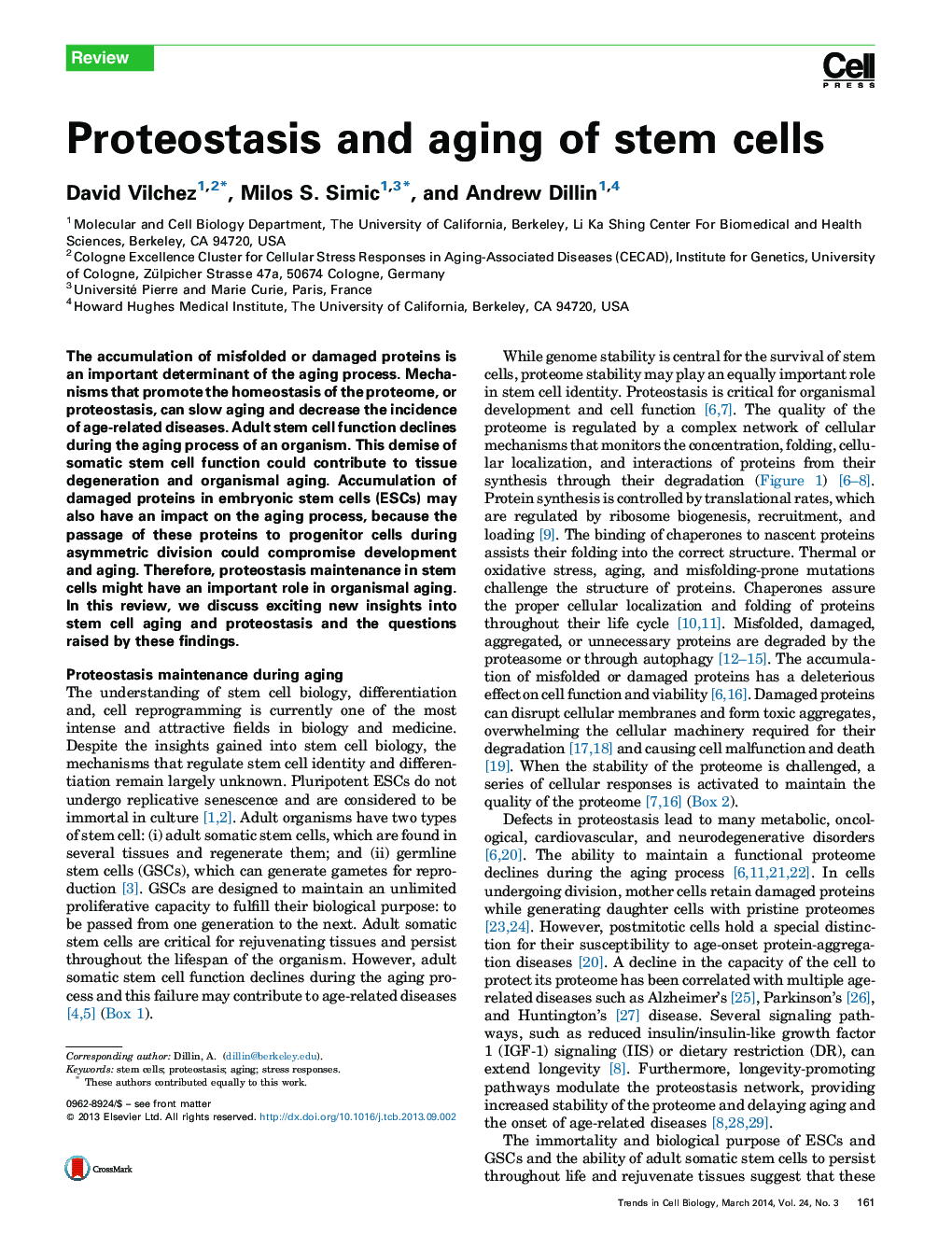| Article ID | Journal | Published Year | Pages | File Type |
|---|---|---|---|---|
| 2204427 | Trends in Cell Biology | 2014 | 10 Pages |
•Protein degradation systems regulate stem cell function.•Stress responses regulate stem cell identity and differentiation.•Longevity-promoting pathways regulate stem cell function.
The accumulation of misfolded or damaged proteins is an important determinant of the aging process. Mechanisms that promote the homeostasis of the proteome, or proteostasis, can slow aging and decrease the incidence of age-related diseases. Adult stem cell function declines during the aging process of an organism. This demise of somatic stem cell function could contribute to tissue degeneration and organismal aging. Accumulation of damaged proteins in embryonic stem cells (ESCs) may also have an impact on the aging process, because the passage of these proteins to progenitor cells during asymmetric division could compromise development and aging. Therefore, proteostasis maintenance in stem cells might have an important role in organismal aging. In this review, we discuss exciting new insights into stem cell aging and proteostasis and the questions raised by these findings.
